
7 Alarming Signs Your PCOS Is Getting Worse
Polycystic Ovary Syndrome (PCOS) isn’t just a “hormonal issue” — it’s a complex metabolic and endocrine disorder that can quietly affect almost every part of your body.
It’s common, it’s underdiagnosed, and when left unchecked, it can progress into something far more serious — from infertility to diabetes and even heart disease.
According to Dr. Meenakshi Bansal, a gynecologist at Sri Balaji Action Medical Institute in New Delhi, recognizing the early warning signs of PCOS progression can make a world of difference in treatment and long-term health.
Here are 7 red flags that your PCOS might be getting worse — and what your body is trying to tell you.
1️⃣ Irregular or Missing Periods
If your menstrual cycles are becoming increasingly irregular — fewer than 8 periods a year, or none at all — it could mean your PCOS is progressing.
This often points to anovulation, where the ovaries fail to release eggs regularly.
Dr. Bansal explains, “When ovulation stops, it increases the risk of endometrial thickening and fertility complications.”
The Office on Women’s Health (USA) also notes that early detection and intervention can help regulate cycles and prevent long-term consequences.
👉 Bottom line: Don’t ignore missed periods — your cycle is one of the clearest windows into your hormonal health.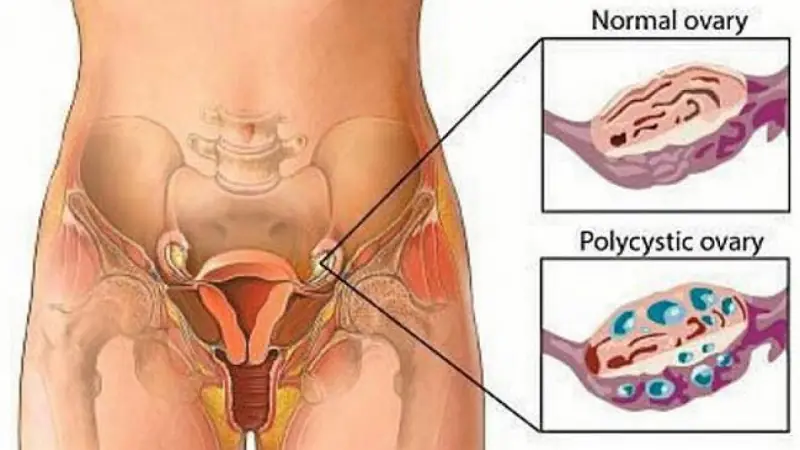
2️⃣ Unexplained Weight Gain — Especially Around the Belly
Gaining weight, particularly in the abdominal area, despite healthy eating and regular exercise, is one of the strongest indicators that PCOS is getting worse.
The culprit? Insulin resistance — a metabolic imbalance that makes your body store more fat, especially visceral fat (the dangerous kind that wraps around organs).
Johns Hopkins Medicine warns that visceral fat not only fuels insulin resistance but also increases the risk of type 2 diabetes and cardiovascular disease.
👉 What to do: Focus on balanced meals (low in refined carbs, rich in protein and fiber), manage stress, and include resistance training — all proven to improve insulin sensitivity.
3️⃣ Worsening Acne, Oily Skin, or Unwanted Hair Growth
Persistent acne, oily patches, or coarse hair appearing on the chin, chest, or back are signs that your androgen (male hormone) levels are rising — a hallmark of worsening PCOS.
Dr. Bansal explains, “If these symptoms intensify even after treatment, it’s time to reassess your hormonal balance.”
High androgen levels also contribute to hair thinning on the scalp — creating an exhausting cycle of hirsutism and hair loss that many women silently endure.
👉 Tip: Track your skin and hair changes monthly — they often reveal hormonal fluctuations earlier than lab tests.
4️⃣ Thinning Hair or Male-Pattern Baldness
Ironically, PCOS can cause both excess hair growth and hair loss at the same time.
The Mayo Clinic reports that high androgen levels can shrink hair follicles, leading to thinning along the hairline or crown — similar to male-pattern baldness.
“When women notice a widening part or excessive shedding, it’s a clear sign that hormonal imbalance needs urgent attention,” Dr. Bansal advises.
👉 Solution: Address hormone balance with medical support — not just cosmetic fixes like shampoos or supplements.
5️⃣ Darkened Skin Patches or Skin Tags
If you notice dark, velvety patches on your neck, underarms, or groin, it could indicate acanthosis nigricans — a skin condition linked to insulin resistance.
Skin tags (tiny, soft growths) may also appear in these areas.
“These aren’t just cosmetic issues,” Dr. Bansal warns. “They signal that your insulin sensitivity is declining, a major factor driving PCOS progression.”
👉 Pro tip: Don’t ignore these subtle skin changes — they’re your body’s visual SOS.
6️⃣ Signs of Metabolic Complications
PCOS isn’t just about reproductive health — it’s a metabolic disorder that can affect blood sugar, cholesterol, and liver function.
High fasting glucose, elevated LDL cholesterol, or fatty liver disease often accompany uncontrolled PCOS.
If your lab results show increasing blood sugar or cholesterol, don’t dismiss it.
Dr. Bansal urges, “Early medical intervention can help prevent diabetes, heart disease, and other long-term complications.”
👉 Action: Regular blood tests and metabolic screening are essential — even if your PCOS symptoms seem mild.
7️⃣ Mood Swings, Fatigue, and Poor Sleep
Chronic fatigue, anxiety, depression, or even sleep apnea are common but overlooked signs of hormonal imbalance and systemic inflammation caused by PCOS.
When estrogen, progesterone, and cortisol fluctuate wildly, your mood, energy, and sleep quality plummet.
Over time, this can create a vicious cycle that worsens both emotional and physical health.
👉 Tip: Prioritize stress management — yoga, deep breathing, and consistent sleep routines can make a real difference. Seek professional help early if mood issues persist.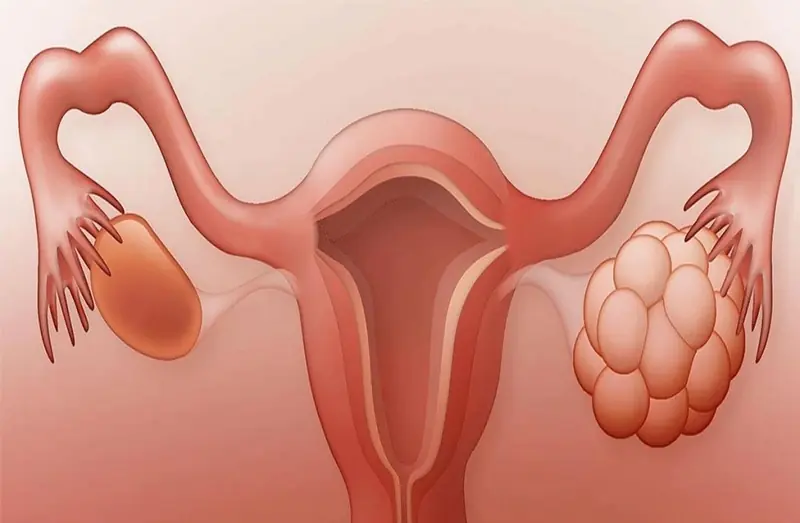
🌿 The Takeaway
PCOS doesn’t worsen overnight — it progresses silently through small, gradual changes that are easy to overlook.
But recognizing the warning signs early gives you the power to take back control of your body and your future.
Your hormones are talking.
It’s time to start listening. 💛
News in the same category

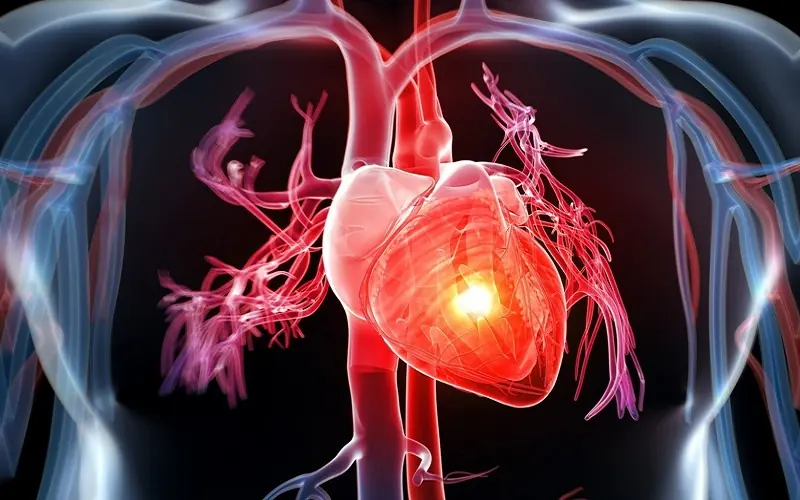
5 Silent Signs Your H.eart Is Crying for Help — But You’re Probably Ignoring Them

Think You’re Eating Enough Protein? 90% of People Are Dead Wrong

The Ancient Super Mushroom That Heals Your Li.ver and Kid.neys Naturally

Sleep Your Way to a Cleaner Li.ver: The Nightly Detox Secret
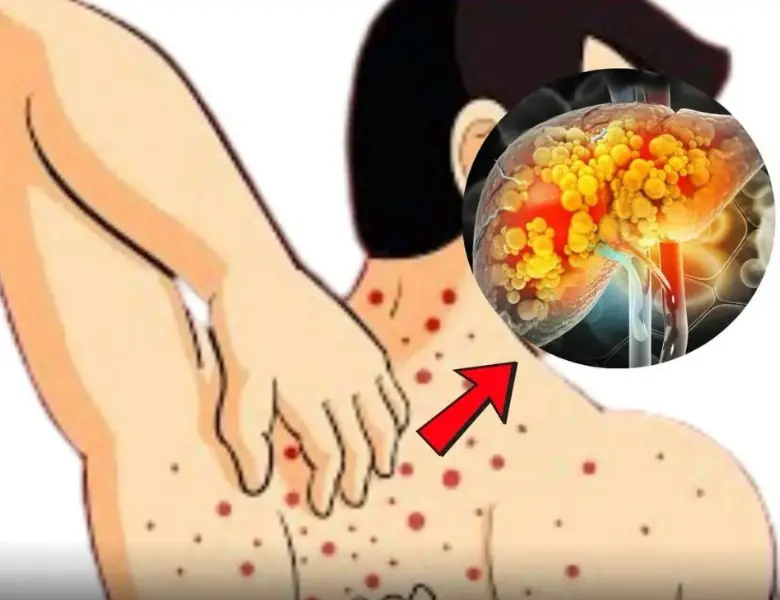
Fa.tty Liver: Causes, Symptoms, Treatment & Evidence-Based Prevention Strategies

Warning: If You Notice This Sign in Your Body, Go to the Hospital Immediately or It May Be Late-Stage Nasoph.aryngeal Can.cer

One Egg a Week, 47% Lower Alzheimer’s Risk

If you drool while sleeping, it is a sign that your brain…

The surprising truth about eating eggs every day

Japan Just Hit 100,000 Citizens Over 100-Years-Old — Their Longevity Secret Isn’t What You’d Think

These 5 Foods Are Diabetes Enemies — Sadly, Many People Are Unaware

New research on so.lid tu.mor kil.ling method, successful in mice, awaiting clinical trials

The Power of Walnuts: A Superfood for Kid.ney Health and Brain Function
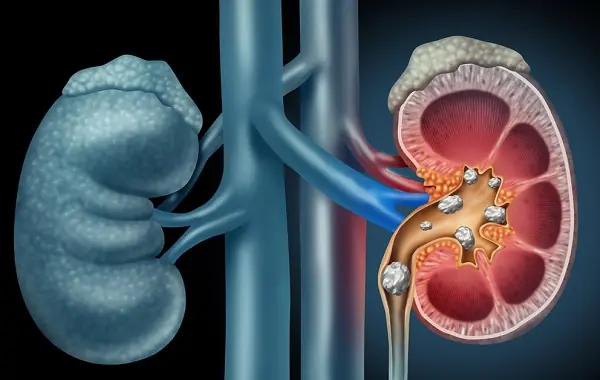
Keep Your Kid.neys Healthy with These Simple, Natural Choices

Experts Say These Four Foods Could Be Part of the Reason. Smart People Have Already Given Them Up

3 Danger.ous Ways Eating Red Dates Could Ha.rm Your Health

5 Natural Drinks to Keep Your Li.ver Healthy and Detoxified

This ‘Super Fruit’ Could Be the Secret to Health, Beauty, and Youth
News Post

4 Hair Care Habits You Think Are Helping — But Are Actually Ruining Your Hair

5 Fruit-Eating Mistakes That Secretly Harm Your Health

5 Silent Signs Your H.eart Is Crying for Help — But You’re Probably Ignoring Them

The Surprising Truth About Cucumbers and Kid.ney Disease

Think You’re Eating Enough Protein? 90% of People Are Dead Wrong

The Ancient Super Mushroom That Heals Your Li.ver and Kid.neys Naturally

Sleep Your Way to a Cleaner Li.ver: The Nightly Detox Secret
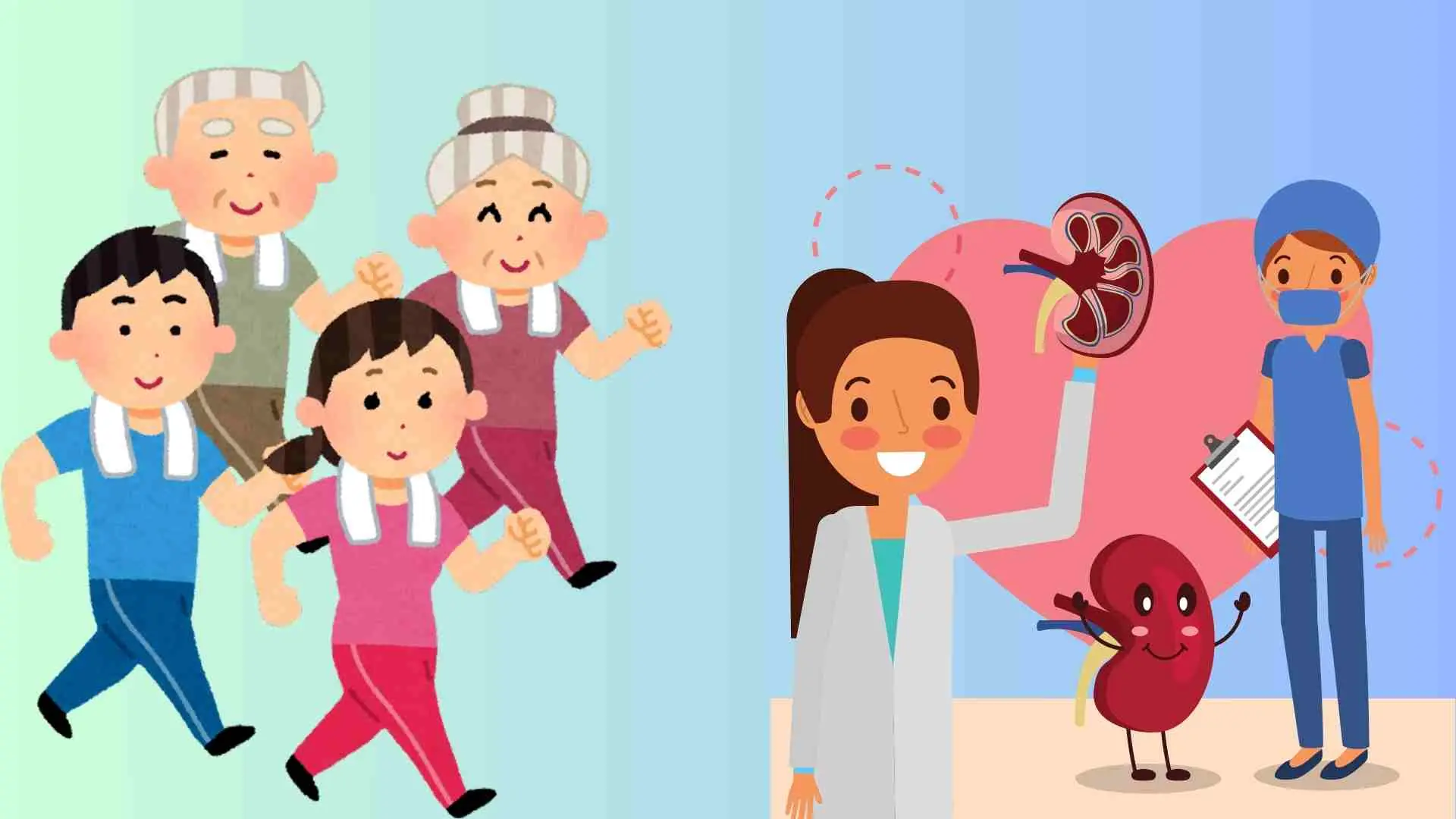
How Walking Can Transform Your Li.ver and Kid.neys Without You Even Realizing It

Fa.tty Liver: Causes, Symptoms, Treatment & Evidence-Based Prevention Strategies

Warning: If You Notice This Sign in Your Body, Go to the Hospital Immediately or It May Be Late-Stage Nasoph.aryngeal Can.cer

What Does It Mean When Someone Who Has Pas:sed Away Appears In Your Dream

One Egg a Week, 47% Lower Alzheimer’s Risk

If you drool while sleeping, it is a sign that your brain…

Why Do Some Windows Have "Belly Bars"?

The surprising truth about eating eggs every day

Japan Just Hit 100,000 Citizens Over 100-Years-Old — Their Longevity Secret Isn’t What You’d Think

Experts Are Shedding Light on the ‘De.ath Rattle’ Phenomenon Before Passing

Here’s Why You Should Leave a Coin in the Freezer Before Leaving the House
